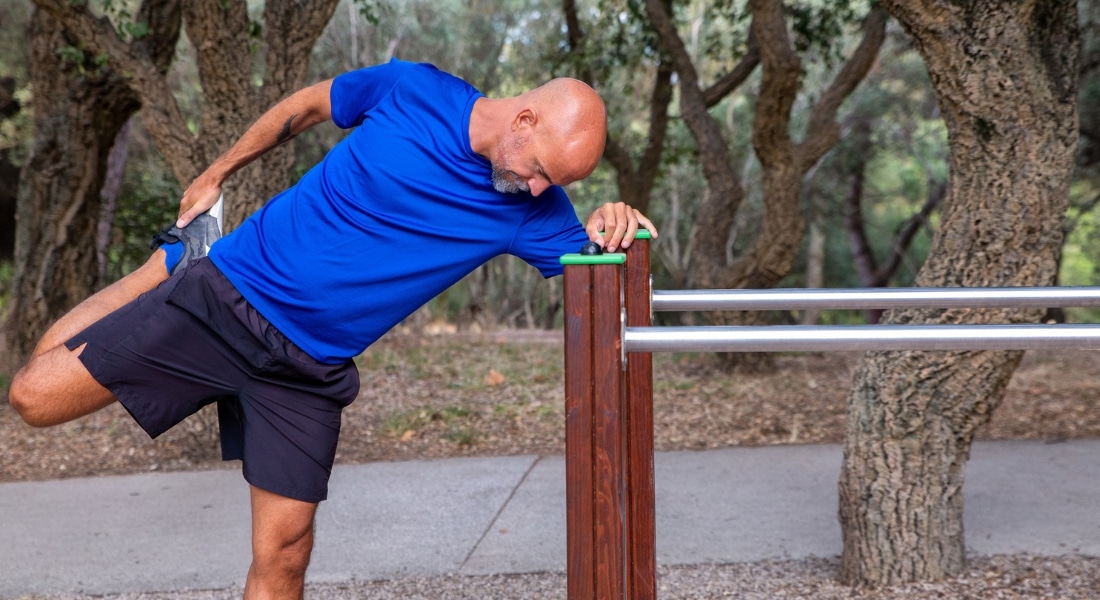A marketing blitz targeting middle-aged men with lagging energy or low libido has inspired many to ask their doctors: “Can you check my testosterone?”
“You hear it everywhere,” says Kyle Oholendt, MD, internal medicine specialist and pediatrician on the medical staff at Methodist Dallas Medical Center. “It creates the belief that testosterone is a magic fix for energy and performance.”
Some boys are born with low testosterone caused by a condition known as hypogonadism that affects up to 4 million American men. For other men, hormone levels naturally decline with age, typically after 45. Illnesses like diabetes and obesity, along with injury or infection, can also contribute to low testosterone, also known as “low-T.”
But these symptoms — fatigue, irritability, loss of muscle mass, and erectile dysfunction — can’t always be solved with hormone therapy, the treatment involving pellets and injections that all those ads are selling.
“If you’re feeling off, have low energy, or suffer from mood changes, don’t jump to testosterone treatment,” Dr. Oholendt advises. “Let’s see if we can get some of that hormone back into the bloodstream naturally.”
For men diagnosed with low-T but not sold on hormone therapy, here are five ways to naturally boost testosterone levels:
1. Manage weight
If you are overweight or obese, take steps to lose excess weight by exercising regularly and eating foods low in calories and saturated fat.
“Testosterone basically is metabolized in the fat cells over to another hormone called estrogen,” Dr. Oholendt says. “So men who are overweight or obese will often have secondary low testosterone state.”
Losing excess weight can eliminate the estrogen stored in that fat and, in the process, help regulate healthy levels of testosterone.

2. Choose a nutrient-rich diet
Focus on foods rich in vitamin D and zinc, such as beans, meat, nuts, poultry, and seafood. Also, limit your intake of saturated fats and sugars.
“Healthy eating helps treat many of the chronic conditions that I see every day, like high blood pressure and diabetes,” Dr. Oholendt says. “But unfortunately, lifestyle changes can get pushed aside in favor of medications.”
After all, “food is medicine,” in the words of another doctor on the medical staff.
3. Get more exercise (and sleep)
Dr. Oholendt urges his patients who struggle to lose weight and have difficulty tolerating exercise to look at physical activity as a good habit rather than a burden.
“I’m a big fan of habits, rather than saying, ‘Oh, I’m lazy,’” he says. “Let’s find more resources to get you more physical activity.”
Improving sleep quality is another habit that could help. Set a goal to get seven to eight hours of sleep each night. Try to go to bed and wake up at the same time every night and morning, and keep electronics out of the bedroom.

4. Reduce stress
Make time to engage in relaxing activities that you enjoy, such as fishing, reading, or taking walks. Try not to overbook your schedule or overextend yourself.
“We have to be doing something on a daily basis to manage the stress,” Dr. Oholendt says. “Try meditation or go on YouTube and learn breathing exercises.”
5. Skip the supplements
Over-the-counter supplements containing vitamins, minerals, and herbal ingredients claim to build muscles, improve libido, and boost energy levels. But because they are unregulated by the FDA, there’s no telling what they contain.
What’s more, ingredients like dehydroepiandrosterone (DHEA) can raise blood pressure and lower good cholesterol, sacrificing good health to artificially boost testosterone.

A proper evaluation with a doctor should be the first step for any man who’s worried about symptoms often associated with low-T. That discussion can help identify underlying issues like obesity, sleep disorders, or some other chronic illness.
“Have a conversation,” Dr. Oholendt says. “Explore the causes and treat smart, not fast.”
If your doctor does detect low-T, they may perform additional tests to determine the cause. One possible treatment is testosterone replacement therapy, or TRT.
“In rare cases, the brain doesn’t tell the body to make testosterone,” Dr. Oholendt says. “Those men really can benefit from hormone therapy like testosterone injections, patches, and pellets.”
It’s worth noting, however, that to be fully effective, TRT must be continued throughout life with regular monitoring. If the treatment is stopped, your hormone levels are likely to drop again.






